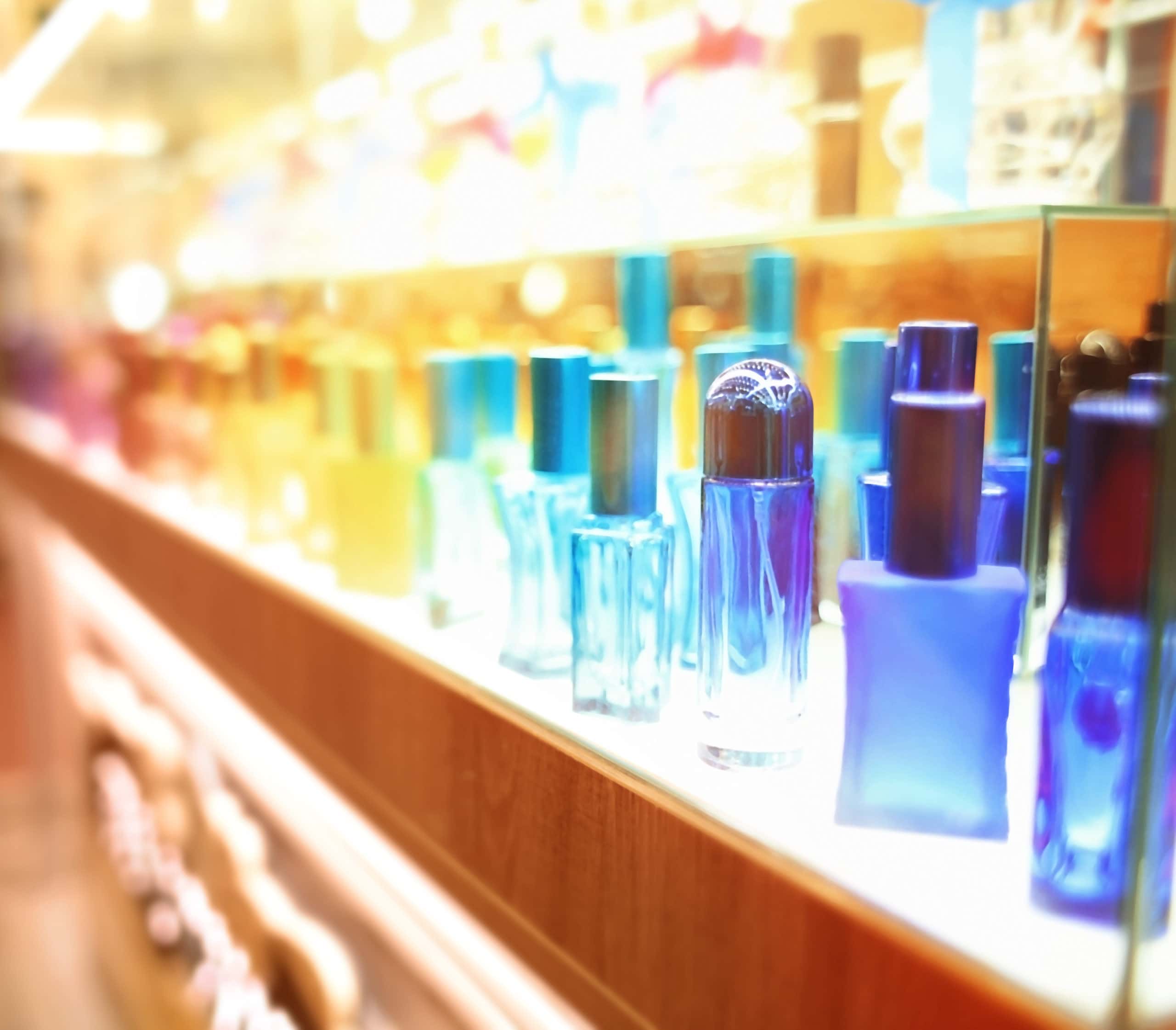It’s a reasonable expectation that once you’ve sprayed/dabbed on your favourite scent it will last a long time, right? The problem is that a long lasting smell can be a clue to the presence of synthetic (fake) fragrances paired with phthalates, which makes the smell “stick” and linger. Synthetic fragrances contain toxic chemicals known as endocrine disruptors, which mimic or interfere with our body’s hormones, known as the endocrine system.[i] And endocrine disruptors have been linked to a whole raft of health implications, including cancer (breast; thyroid; prostate), alterations in sperm quality and fertility, abnormalities in sex organs, endometriosis, early puberty, respiratory problems, diabetes, obesity, cardiovascular problems, and attention deficit/hyperactivity in kids.[ii] [iii]
Synthetic fragrances are mixtures of various chemicals that produce a desired scent. A single scent may contain anywhere from 50 to 300 distinct chemicals.[iv] According to a 1986 report by the National Academy of Sciences, up to 95% of the chemicals used in synthetic fragrances are derived from petroleum, including many other known toxic chemicals linked to cancer, birth defects, central nervous system disorders and allergic reactions. In 2001 the Environmental Protection Agency (EPA) undertook similar research and found that synthetic fragrances often contain hormone disruptors linked to abnormal cell reproduction. And the harm doesn’t end with us. Synthetic musks used in fragrances are of particular concern to our beautiful Earth. When these chemicals make their way into the environment (during washing, showering, or bathing), they can build up (bioaccumulate) in the fatty tissue of aquatic organisms, posing a threat to the ecosystem.[v] [vi]
And you don’t need to ingest the synthetic fragrances to expose yourself to harm. Researchers have discovered that much of what you put on your skin, ends up in your body.[vii] Similarly you can inhale these chemicals by spraying perfumes/cologne.
So how can we avoid these synthetic fragrances and phthalates? There’s some bad news and some good news. The bad news is fragrance acts as loophole in the regulation of personal care products, which means it’s not compulsory for brands to disclose their full list of ingredients. As such these companies can legally conceal hundreds of synthetic chemicals in one word – ‘fragrance’ or ‘parfum’. These synthetic fragrances are much cheaper and more readily available than those produced naturally, so are becoming even more popular and ever-present in products in our everyday lives.
But what this really means is as a consumer you have no idea what ingredients are in your perfume or cologne. This legal loophole is said to protect the company’s “trade secrets” so that others can’t replicate their product. But what it really does is keep consumers in the dark about what we are dabbing or spraying on our skin. So now for the GOOD news (please!).. Luckily, you can easily avoid synthetic fragrances by reading product labels. Avoid products with “fragrance” or “parfum” on their ingredient list, and if there is no ingredient list at all – ditch the product.
Hey I get it, you want to still smell good and have your own signature scent?! I felt exactly the same. I was devastated at the thought of ditching my favourite perfumes with so many memories attached to these scents. There was my ‘wedding day perfume’; my ‘perfume I’d worn on that romantic holiday’; and the scent I wore to feel confident while public speaking. So instead of ditching perfumes entirely, I swapped to a healthier alternative (and created new memories ;))
For Us and Earth tips:
- For your health and the health of our beautiful planet, steer clear of big-name perfume and cologne brands. Wherever you can, start swapping out these perfumes and colognes for natural and organic perfumes and fragrances, with an INGREDIENTS LIST. There are now so many awesome natural brands to choose from, including many made in Australia. As more and more people ditch the toxic products, the demand for healthier brands increases, which is a huge win win For Us and Earth!
- Avoid products with “fragrance” or “parfum” listed as an ingredient. The exception to this is if the ingredient says “Fragrance*” with an asterisk that then says “*from natural essential oil”. These are generally ok.
By minimizing your daily exposure to synthetic fragrances and phthalates, you’ve made a positive step towards a healthier future.
Yours in Health,
Carolyn
[i] https://www.niehs.nih.gov/health/topics/agents/endocrine/index.cfm
[ii] https://www.who.int/mediacentre/news/releases/2013/hormone_disrupting_20130219/en/
[iii] https://www.hormone.org/your-health-and-hormones/endocrine-disrupting-chemicals-edcs
[iv] http://fragrancematerialsafetyresource.elsevier.com/sites/default/files/AB-2-Bickers-Safety.pdf
[v] https://www.mdpi.com/2079-9284/7/1/13/htm



Want to learn more about reducing your exposure to toxics in your everyday products, and other simple swaps for a healthier you & earth?
Sign up here and receive my free 5 Easy Ways to Reduce Toxics OR Join my mailing list and receive regular tips to lower your toxic load.